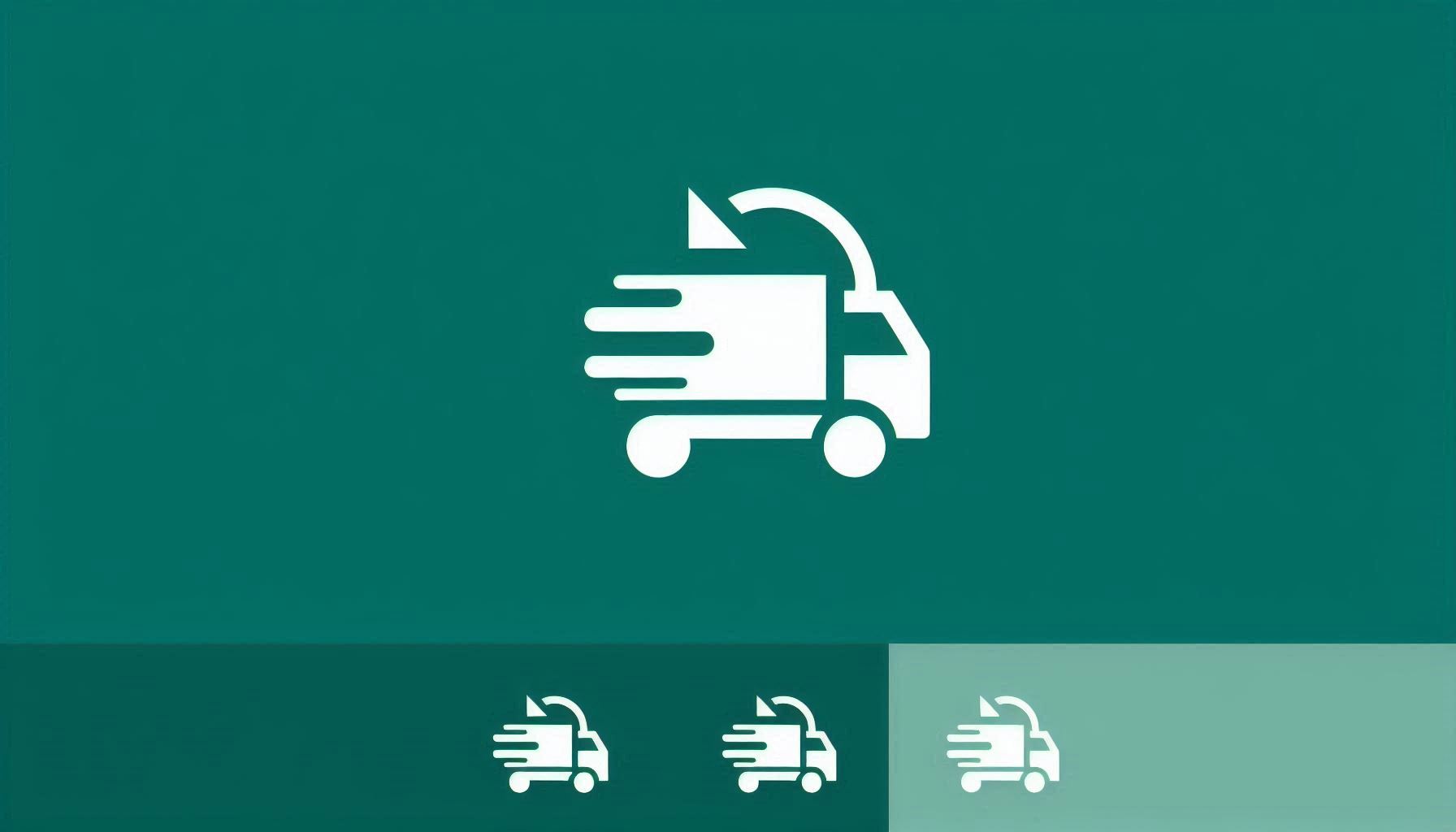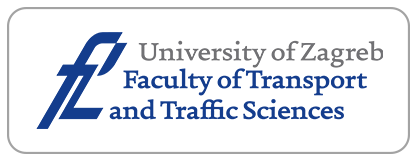Selecting the Flexible Last-Mile Delivery Models Using Multicriteria Decision-Making

Downloads
Postal service providers can reorganise the last-mile delivery process within the scope of universal service and apply some of the flexible models for the organisation of the delivery. In this paper, the question of the selection of Flexible Last-Mile Delivery Models (FLMDMs) is treated using multicriteria decision-making. We have identified four different sustainable last-mile delivery models with an emphasis on the number of delivery workers. One postal service provider from Europe was selected, where the proposed FLMDMs were tested. The proposed last-mile delivery models are ranked using Multiple Criteria Decision Analysis (MCDA) techniques. In this context, MCDA techniques are used to make a comparative assessment of alternatives. The obtained results suggest the AB delivery model as the optimal choice for the last-mile delivery and complete allocation of the number of delivery workers.
Downloads
EU. Directive 97/67/EC of the European Parliament and of the Council of 15 December 1997 on Common Rules for the Development of the Internal Market of Community Postal Services and the Improvement of Quality of Service. European Union (EU); 1997. http://data.europa.eu/eli/dir/1997/67/oj.
EU. 2002. Directive 2002/39/EC of the European Parliament and of the Council of 10 June 2002 Amending Directive 97/67/EC with Regard to the Further Opening to Competition of Community Postal Services. European Union (EU); 2002. http://data.europa.eu/eli/dir/2002/39/oj.
EU. 2008. Directive 2008/6/EC of the European Parliament and of the Council of 20 February 2008 Amending Directive 97/67/EC with Regard to the Full Accomplishment of the Internal Market of Community Postal Services. European Union (EU); 2008. http://data.europa.eu/eli/dir/2008/6/oj.
Finger M. The postal network between competition and regulation and universal service provision: Possible scenarios for its evolution. Competition and Regulation in Network Industries. 2006;1(1):29-48. DOI: 10.1177/178359170600100102.
Gracin J, Stipetić A. Designing postal network units. Promet – Traffic&Transportation. 2009;21(6):387-94. https://traffic.fpz.hr/index.php/PROMTT/article/view/255.
Mostarac K, et al. Determining accessibility of post network elements with application of gravity method. Podravina. 2018;17(33):63-73.
Boldron F, et al. Environmental cost and universal service obligations in the postal sector. Review of Network Economics. 2011;10(3). DOI: 10.2202/1446-9022.1226.
Flecker J, et al. A ‘Problem of Fairness’ in the making: The transformation of public services from the perspective of postal workers. British Journal of Industrial Relations. 2016;54(4):768-789. DOI: 10.1111/bjir.12170.
Dassault Systèmes. Supply chain last mile report. Vélizy-Villacoublay, France: Dassault Systèmes; 2020.
Elkington J. Cannibals with Forks: The triple bottom line of 21st century business. Oxford, UK: Capstone Publishing; 1999.
United Nations. The 2030 agenda for sustainable Development. A/RES/70/1. https://sdgs.un.org/.
Klein P, Popp B. Last-mile delivery methods in e-commerce: Does perceived sustainability matter for consumer acceptance and usage? Sustainability. 2022;14:16437. DOI: 10.3390/su142416437.
Thomas R, Ueltschy Murfield M, Ellram L. Leveraging sustainable supply chain information to alter last-mile delivery consumption: A social exchange perspective. Sustainable Production and Consumption. 2022;34:285-299. DOI: 10.1016/j.spc.2022.09.014.
Ignat B, Chankov S. Do e-commerce customers change their preferred last-mile delivery based on its sustainability impact?. The International Journal of Logistics Management. 2020;31(3):521-548. DOI: 10.1108/IJLM-11-2019-0305.
Mucowska M. Trends of environmentally sustainable solutions of urban last-mile deliveries on the e-commerce market – A literature review. Sustainability. 2021;13:5894. DOI: 10.3390/su13115894.
Altenried M. On the last mile: Logistical urbanism and the transformation of labour. Work Organisation, Labour & Globalisation. 2019;13(1):114-129. DOI: 10.13169/workorgalaboglob.13.1.0114.
Bates O, et al. Transforming last-mile logistics: Opportunities for more sustainable deliveries. Computer Human-Interaction (CHI). 2018. DOI: 10.1145/3173574.3174100.
Malhotra M, et al. A model for scheduling postal distribution employees. European Journal of Operational Research. 1992;58(3):374-385. DOI: 10.1016/0377-2217(92)90068-K.
Demazière D, Mercier D. Mail carriers’ routes: Managerial standards, collective regulation and work activity strategies. Sociologie du Travail. 2006;48(Supplement 1):e1-e21. DOI: 10.1016/j.soctra.2006.02.004.
Corejova T, et al. E-commerce and last mile delivery technologies in the European countries. Production Engineering Archives. 2022;28(3):217-224. DOI: 10.30657/pea.2022.28.26.
Bruno G, et al. Reorganizing postal collection operations in urban areas as a result of declining mail volumes – A case study in Bologna. Journal of the Operational Research Society. 2021;72(7):1591-1606. DOI: 10.1080/01605682.2020.1736446.
Muharemović E, et al. Cost and performance optimisation in the technological phase of parcel delivery – A literature review. Promet – Traffic&Transportation. 2013;3(1):129-139. DOI: 10.7307/ptt.v33i1.3439.
Chromcová B, Švadlenka L. Proposal of reconstruction of postal transportation network. Perner’s Contacts. 2010;5(4):78-88. https://pernerscontacts.upce.cz/index.php/perner/article/view/1045.
Bruno G, et al. Strategies to reduce postal network access points: From demographic to spatial distribution criteria. Utilities Policy. 2021;69. DOI: 10.1016/j.jup.2021.101189.
Turska S, et al. Optimization of the delivery process in the urban area. Proceedings of the 23rd International Conference Transport Means. 2019. p. 809-813.
Niroomand I, Nsakanda AL. Improving collection flows in a public postal network with contractor's obligation considerations. International Journal of Production Economics. 2006;198:79-92. DOI: 10.1016/j.ijpe.2018.01.025.
Laseinde OT, Mpofu K. Providing solution to last mile challenges in postal operations. International Journal of Logistics Research and Applications. 2017;20(5):1-16. DOI: 10.1080/13675567.2017.1288712.
Sandoval GM, et al. A novel districting design approach for on-time last-mile delivery: An application on an express postal company. Omega. 2022;113:102687. DOI: 10.1016/j.omega.2022.102687.
Yılmaz ŞF, et al. Novel last mile delivery models in terms of sustainable urban logistics. Journal of Turkish Operations Management. 2022;6(1):1076-1091. https://dergipark.org.tr/en/pub/jtom/issue/70951/1020570.
Alizadeh F, Lahiji M. Suitable delivery system in small e-commerce companies. J. Hum. Ins. 2018;2(4):167-171. DOI: 10.22034/JHI.2018.80886.
Wang CN, et al. Evaluating sustainable last-mile delivery (LMD) in B2C e-commerce using two-stage fuzzy MCDM approach: A case study from Vietnam. IEEE Access. 2021;9:146050-146067. DOI: 10.1109/ACCESS.2021.3121607.
Krstić M, et al. A novel hybrid MCDM model for the evaluation of sustainable last mile solutions. Mathematical Problems in Engineering. 2021;2021:5969788. DOI: 10.1155/2021/5969788.
Polychroniou PV, Giannikos I. A fuzzy multicriteria decision‐making methodology for selection of human resources in a Greek private bank. Career Development International. 2009;14(4):372-387. DOI: 10.1108/13620430910979853.
Widianta MMD, et al. Comparison of multi-criteria decision support methods (AHP, TOPSIS, SAW & PROMETHEE) for employee placement. Journal of Physics: Conference Series. Vol. 953. The 2nd International Joint Conference on Science and Technology (IJCST) 27–28 Sep. 2017, Bali, Indonesia. 2017. DOI: 10.1088/1742-6596/953/1/012116.
Pourkhodabakhsh N, et al. Effective machine learning, Meta-heuristic algorithms and multi-criteria decision making to minimizing human resource turnover. Appl Intell. 2022. DOI: 10.1007/s10489-022-04294-6.
Demirci AE, Kılıç HS. Personnel selection based on integrated multi-criteria decision making techniques. International Journal of Advances in Engineering and Pure Sciences. 2019;31(2):163-178. DOI: 10.7240/jeps.505970.
Dağdeviren M. A hybrid multi-criteria decision-making model for personnel selection in manufacturing systems. J Intell Manuf . 2010;21:451-460. DOI: 10.1007/s10845-008-0200-7.
Korkmaz O. Personnel selection method based on topsis multi-criteria decision making method. Uluslararası İktisadi ve İdari İncelemeler Dergisi. 2019;(23):1-16. DOI: 10.18092/ulikidince.468486.
Bottero M, et al. Multicriteria evaluation of urban regeneration processes: An application of PROMETHEE method in northern Italy. Advances in Operations Research. 2018;2:1-12. DOI: 10.1155/2018/9276075.
Oubahman L, Duleba S. Review of PROMETHEE method in transportation. Production Engineering Archives. 2021;27(1):69-74. DOI: 10.30657/pea.2021.27.9.
MONSTAT Statistical Office of Montenegro. 2021. http://monstat.org/eng/novosti.php?id=3504.
EKIP. Pravilnik o bližim uslovima za obavljanje univerzalne poštanske usluge. Podgorica; 2017. (Montenegrin) https://www.ekip.me/media/documents/general.
Pošta Crne Gore. Metodologija za standardizaciju prikupljanja i obrade statističkih podataka u Pošti Crne Gore. Podgorica; 2017. (Montenegrin).
Pošta Crne Gore. Godišnji izvještaj o radu i finansijskom poslovanju. Podgorica; 2021. (Montenegrin).
Radović D, et al. Measuring performance in transportation companies in developing countries: A novel rough ARAS model. Symmetry. 2018;10(10):434. DOI: 10.3390/sym10100434.
Pehlivan NY, Gürsoy Z. Determination of individuals’ life satisfaction levels living in Turkey by FMCDM methods. Kybernetes. 2019;48(8):1871-1893. DOI: 10.1108/K-04-2018-0184.
Fu YK. An integrated approach to catering supplier selection using AHP-ARAS-MCGP Methodology. Journal of Air Transport Management. 2019;75:164-169. DOI: 10.1016/j.jairtraman.2019.01.011.
Karabašević D, et al. Selection of software testing method by using ARAS method. Tehnika. 2018;73(5):724-729. DOI: 10.5937/tehnika1805724K.
Tupenaite L, et al. Multiple criteria assessment of alternatives for built and human environment Renovation. Journal of Civil Engineering and Management. 2010;16(2):257-266. DOI: 10.3846/jcem.2010.30.
Copyright (c) 2023 Mladenka Blagojević, Dragana Šarac, Katarina Mostarac

This work is licensed under a Creative Commons Attribution-NonCommercial 4.0 International License.




















